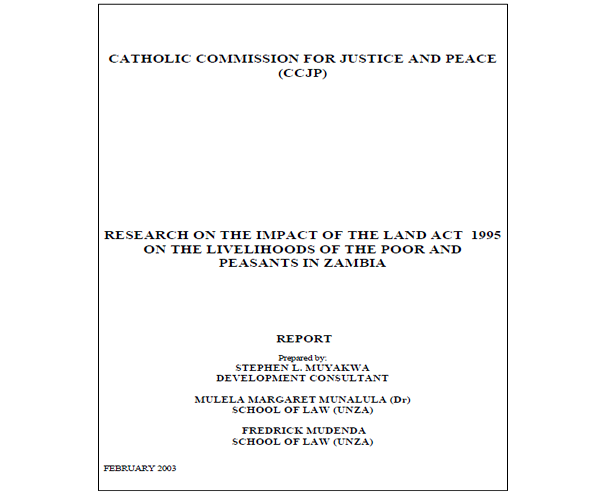The General objective of this research is to investigate the impact of the current land law regime on the livelihoods of peasants in Zambia.
The backdrop of this research is that one of the key principles of the social teaching of the Catholic Church is that of “option for the poor”.

This principle enjoins the Catholic Church in its evangelisation and social programmes, to promote and defend the interests and rights of members of the society who are prone to being marginalized or down trodden. Development should thus strive to achieve common good and maximise benefits to the poor by giving them preference. In the Zambian context, the importance of this mission is underscored by the fact that 80% of the population actually live below the poverty datum line.
Furthermore, it is generally acknowledged that land occupies a central position in all efforts directed at improving the welfare of any people. Therefore, any threat to quiet enjoyment of and access to land is potentially disastrous for rural livelihoods. It is for this reason that any institution concerned with improving the welfare of the poor should interest itself in the formulation and development of an appropriate national land policy.
It will be recalled that a major conference to review the national land policy and land law in Zambia was held in July 1993. Various stakeholders from various sectors of Zambian society were invited to the conference.
Following the conference, a controversial land bill was drafted. As a result of the controversy generated by the bill and civil society generally and CCJP pressure in particular, the same was temporarily withdrawn from Parliament to allow for wider consultation. However, in 1995, the bill was hastily re-introduced in Parliament without making any significant changes to it.
Find the entire report here...

